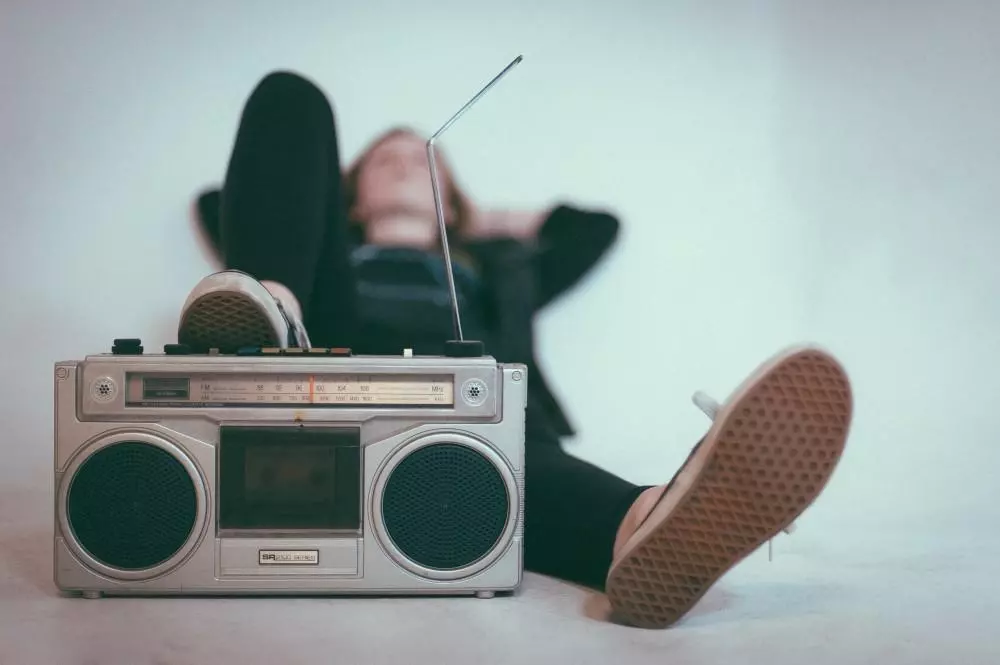In this Post
Music has a profound effect on one’s mood and mental state. It can impact our emotions and change how we think and has proven to be beneficial in supporting the treatment of certain mental illnesses. This has brought a rise to music therapy, which is described as ‘an evidence-based treatment that helps with a variety of disorders including cardiac conditions, depression, autism, substance abuse, and Alzheimer’s disease. It can help with memory, lower blood pressure, improve coping, reduce stress, improve self-esteem, and more.
Music and Mood
Multiple studies have shown that music has been found to have a positive effect on people’s emotional wellbeing. A study from Music Therapy for Depression indicated that music therapy provided short-term beneficial effects for people suffering from depression. They found that when music therapy was added in conjunction with normal treatment, it improved the patient’s well-being better than if the patient only had the normal treatment alone. Another report by the Global Council on Brain Health (GCBH) found that music had a positive effect on well-being and improved mood, reduced stress, and lowered anxiety levels.
Ketamine Infusion Therapy Treatment
Ketamine Infusion Therapy Treatment is also a method used to help those suffering from depression and other mental health problems and has been found to be very beneficial in improving wellness and a patient’s mood when traditional medicine used to treat depression is nonresponsive.
While a patient is receiving IV ketamine therapy treatment, the setting and space the patient is in have a profound effect on their experiences during and after receiving treatment. In this therapy, one’s mindset is referred to as ‘set,’ and the physical and social environment is referred to as ‘setting.’ Set and setting have the power to influence how you receive your ketamine infusion and impact your ketamine treatment experience,e as well as the effect it will have post-infusion.

Music and Ketamine
It’s important that before you start ketamine therapy, you consider your set and setting so that you will have a positive and enhanced experience. Music has been found to be an important factor when one is considering ketamine therapy, as music’s effects on one’s mood have been found to change or be enhanced if played in conjunction with ketamine therapy.
Specifically, music has been found to influence what is called emergence phenomena. Emergence phenomena is a term used to describe how a patient feels when they emerge from anesthesia with ketamine.
A study sought to examine the effects of listening to music and whether it has the potential to influence the emergence phenomena. Researchers conducting the study examined the way the emergence phenomena present itself after ketamine anesthesia when music is present and what sort of effects music has, be it positive, negative, or neutral. The study involved 80 healthy patients with an age range of 10-25 years old who were undergoing minor surgical procedures; they were randomly divided into 2 groups of 40, and both given intravenous ketamine as an anesthetic. The study group was supplied with headphones and was able to listen to the music of their choice before the ketamine was administered, while the control group did not listen to any music.
The study found that the experimental music group had a higher rate of positive dreams when compared to the control group (23 out of 40). Music also seemed to provide those in the study group with a more favorable view of ketamine. 32 out of 40 patients in the study group said that they would have a similar anesthetic like ketamine in the future, while 10 of the patients in the control group said they would refuse a similar anesthetic. None of the patients in the study group said they would refuse a similar anesthetic.
Results from this study show promising findings that link music and ketamine treatment, providing those patients with an overall better experience with ketamine as well as improving their mood and reducing the negative effects of the emergence phenomena. More research is needed to link the mood-improving benefits of music to how it interacts with the brain that is currently undergoing ketamine infusion therapy.
What music is right for me?
For those seeking to enhance their ketamine therapy session with music, they may be wondering what type of music works the best? It is recommended that those who are just beginning play neutral-sounding music, such as ambient music without vocals. This music can have a profound effect on your emotions, so it is important that you gauge how you react to gentle, soft music before you turn to more emotional and intense music.
Another important factor to consider when you’re planning on playing music during your ketamine infusion therapy session is to consider what emotion you want to feel during your treatment. Aiming for positive-sounding songs that uplift and empower you is recommended, as these positive emotions will help you to feel more uplifted after your session. It is important to consider what sort of emotions you want to express and choose songs that match how you want to feel during and after your sessions.
At Avesta, we recommend all patients identify a ketamine playlist to listen to during the ketamine therapy session; talk to your healthcare provider to help you create a playlist that will work for you. At Avesta Ketamine and Wellness, we’re dedicated to creating a safe and reliable space for you. Choosing the music you want to play is critical in creating a beneficial and positive treatment for yourself, so if you are unsure of where to start, it’s always best to ask and go in small steps. At Avesta, we have a couple of playlists on Spotify that patients really like, and we recommend you start with the “upbeat” one on our list and go from there. Music has already been proven to have a powerful effect on one’s mood, and for those who are seeking to start ketamine infusion therapy for their depression or mental health, it can have a profound effect on the quality of their ketamine treatment.

Sources:
Does Music During Ketamine Infusion Treatments Have an Effect on My Experience? – KWC. (2020, August 21). https://ketaminewellnesscenters.com/does-music-during-ketamine-infusion-treatments-have-an-effect-on-my-experience/
Does Music Impact the Ketamine Experience? (2019, April 15). Reset Ketamine – Ketamine Infusion Clinic in Palm Springs, California. Retrieved July 1, 2022, from https://www.resetketamine.com/blog/2019/4/14/does-music-impact-the-ketamine-experience
How to Create Your Own Music Playlists for Ketamine Treatment. (2022, March 26). Retrieved July 1, 2022, from https://www.mindbloom.com/blog/create-music-playlists-ketamine-treatment-psychedelic-therapy-how-to
Music Therapy: What Is It, Types & Treatment. (2020, November 24). Cleveland Clinic. Retrieved July 1, 2022, from https://my.clevelandclinic.org/health/treatments/8817-music-therapy
Pezeshkian, M. (2022, March 26). How To Create The Best Playlist For Ketamine Therapy • Wavepaths. Wavepaths. https://wavepaths.com/blog/selecting-the-best-music-for-ketamine-therapy
Wavepaths. (2022, March 26). Music For Ketamine Therapy: What Effect Does It Have? • Wavepaths. Wavepaths. https://wavepaths.com/blog/music-for-ketamine-therapy
Image by <a href=”https://pixabay.com/users/stocksnap-894430/?utm_source=link-attribution&utm_medium=referral&utm_campaign=image&utm_content=2588503″>StockSnap</a> from <a href=”https://pixabay.com//?utm_source=link-attribution&utm_medium=referral&utm_campaign=image&utm_content=2588503″>Pixabay</a>
Author Dr. Ladan Eshkevari, PhD, CRNA, FAAN Dr. Eshkevari is the lead clinician at Avesta, and is a long time researcher and educator in physiology, biophysics, and anesthesiology. She is passionate about assisting patients with retractable, difficult to treat mood disorders, and relies on the latest research to bring evidence to Avesta’s practice to better understand and serve patients.


